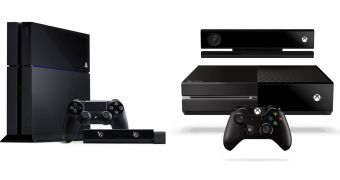Does a launch date for a home console that’s supposed to have at least a five-year life cycle truly matter? That’s the question that popped up after Microsoft revealed this week that it would be launching its Xbox One on November 22 in a number of tier one countries, with the rest of the world getting it in 2014.
We already know that the PlayStation 4 from Sony will be offered in North America starting with November 15 and on European markets two weeks later.
Much has been said about the advantage that the seven days separation will give to the Sony team and how Microsoft will be hard pressed to catch up later in 2013 and early next year.
I am not convinced that a difference of one week will mean anything for long-term sales and success, mainly because there’s no category of player that’s going to make his decision based on release date.
There are die-hard fans of both Sony and Microsoft who are only interested in what their company has to offer and will never cross to the other side, which means that they can wait as long as required to get their preferred hardware.
There are unlimited budget players who will get both devices on their launch dates and pick up a few launch titles for them.
The vast majority that wants just one of them as soon as possible will read news about the Xbox One and the PlayStation 4 and might even wait for some hardware reviews before spending their money on a purchase.
November 15 versus November 22 is a false contest because it tells us nothing about long-term plans for both devices and the only real result of the seven-day difference will be that Sony will put out a congratulatory press release just before the Xbox One is out.

 14 DAY TRIAL //
14 DAY TRIAL //